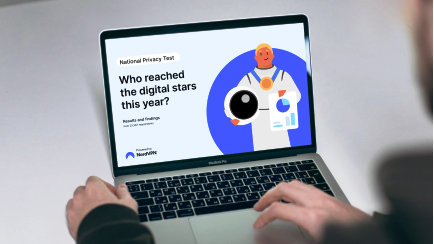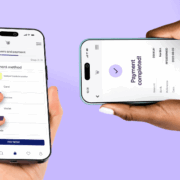- The most cybersecurity-aware country this year is Singapore.
- People ages 30-54 have the best cybersecurity skills.
- Only 6% of people globally know what privacy issues to consider when using AI for work.
The world’s online privacy and cybersecurity awareness continues to decline, according to new research by the cybersecurity company NordVPN. Based on 31 analyzed markets with the highest numbers of responses, people globally knew best how to create strong passwords (96%), and they were worst with questions related to privacy issues that go hand in hand with AI usage for work (52%).
RELATED: Navigating the future – the synergy of Generative AI and cybersecurity
The annual National Privacy Test (NPT) is a global survey aimed to evaluate people’s cybersecurity, online privacy awareness, and educate the general public about cyber threats and the importance of data and information security in the digital age. It gathered 25,567 responses from 181 countries this year.
These countries rank in the top three for internet privacy and cybersecurity awareness:
- Singapore (62/100)
- Finland and Lithuania (61/100)
- Germany and the United States (60/100)
“Technological advancements might be overwhelming for some people, which may make them struggle to keep up. Convenience-driven online applications become more ingrained in our daily lives, and people often prioritize ease of use over privacy, unintentionally exposing themselves to risks.
“Even though it’s concerning to see a decline in global internet privacy awareness, this trend only confirms the growing need for more education in protecting our personal data online,” says Marijus Briedis, chief technology officer (CTO) at NordVPN.
Compared to 2023, less people understand the security benefits of updating apps
The results of the test showed that people globally are also good at dealing with suspicious streaming service offers (95%), and they know which permissions to grant to different apps (91%).
On the other hand, people globally also did not know what data ISPs collect as part of the metadata (13%), or how to secure their home Wi-Fi network (16%), most likely considering it safe by default.
Among all respondents, 1% are Cyber Wanderers (barely know anything about internet privacy and cybersecurity), while the biggest proportion (66%) scored 50-74 points and were identified as Cyber Adventurers.
Compared to 2023, less people understand the security benefits of updating apps as soon as the update is available. While in 2023, 69% said they update an app as soon as an update is available, this year, it’s 56%.
Steps to increase online security and privacy
Marijus Briedis from NordVPN shares a series of steps people can take to enhance their online privacy and security:
- Create unique and strong passwords. Use unique and robust passwords for each of your online accounts.
- Enable multi-factor authentication (MFA). Strengthen your account security by enabling multi-factor authentication.
- Keep your software up to date. Regularly update your software, operating systems, and applications.
- Use a virtual private network (VPN). Always use a VPN to encrypt your internet connection, safeguarding your personal information from potential eavesdroppers.
- Review privacy settings. Regularly review and adjust privacy settings on social media platforms, mobile apps, and other online services.
Methodology can be found here: https://nordvpn.com/blog/national-privacy-test-us-2024/





























